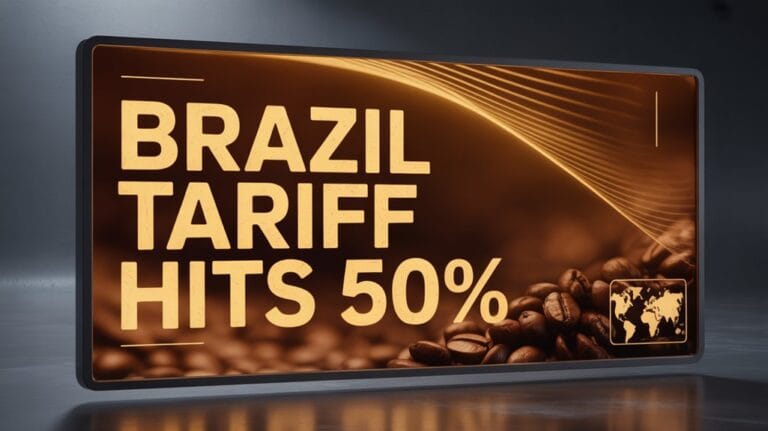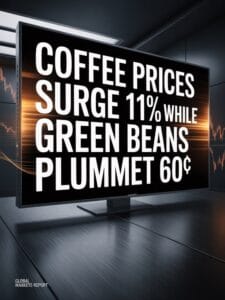As the U.S. slaps a 50% tariff on Brazilian coffee starting August 6, 2025, American companies like Starbucks are scrambling to absorb the hit. Brazil supplies one-third of all U.S. coffee imports, and the sudden price hike threatens to disrupt supply chains and fuel price inflation. The tariff comes despite the U.S. trade surplus with Brazil, which has persisted uninterrupted since 2007.]
Starbucks alone expects a 3.5% jump in costs for its packaged coffee division, denting profitability. The company’s earnings per share could drop by $0.02, adding pressure as its operating margins fell from 21% to 13.3% in the past year. While quarterly revenue rose 4%, profits missed expectations, and its stock has lagged behind the S&P 500.
The tariff’s ripple effects are spreading fast. Brazilian coffee shipments to the U.S. could stall, risking shortages since American roasters rely heavily on those beans. Competitors like Keurig Dr Pepper and J.M. Smucker have already implemented price increases to offset rising costs, increasing pressure on Starbucks to follow suit despite potential customer backlash. Most operate on thin margins, so the added costs will likely pass to consumers.
Coffee futures jumped 1.3% post-announcement, signaling higher retail prices ahead. Switching suppliers won’t help much: alternatives like Colombian or Vietnamese beans cost more, worsening inflation. Smaller coffee businesses face the biggest squeeze, lacking power to negotiate deals or absorb expenses.
Political friction underlies the move. The tariff follows tensions linked to Brazil’s domestic politics and U.S. trade goals, though specifics remain unclear. Brazil may retaliate with tariffs on $50 billion of U.S. goods, escalating the standoff.
Industry groups like the National Coffee Association are lobbying for exemptions, but outcomes hinge on ongoing negotiations. Some lawmakers argue coffee should get special treatment as a staple product, though no rules have changed yet.
The broader U.S. coffee market is bracing for upheaval. Supply chain shifts could cause delays or shortages, forcing companies to rethink sourcing.
Major players like Starbucks might raise prices or slash margins, but smaller outfits risk closures if they can’t adapt. Investment in new stores or products could stall amid the uncertainty.
With no clear timeline for resolution, the tariff’s long-term impact—on prices, trade ties, and morning routines—remains a brewing question.





